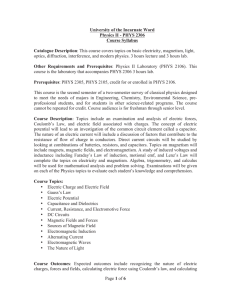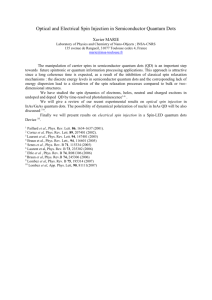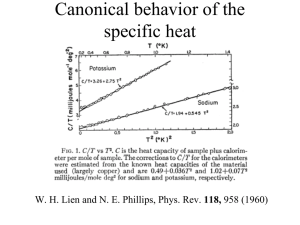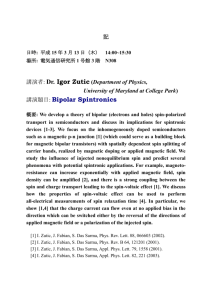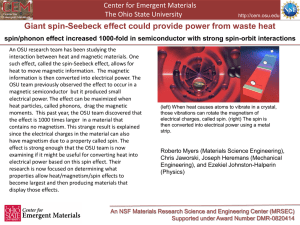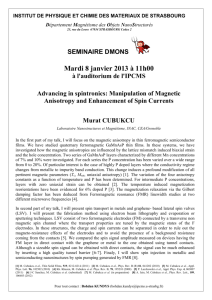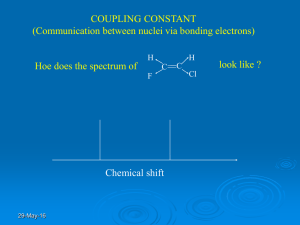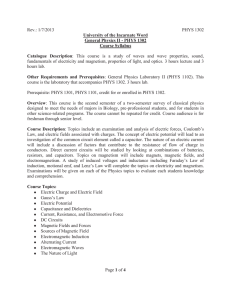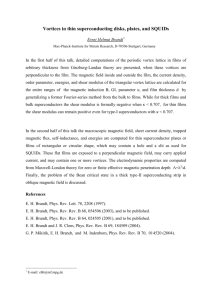Spin-Transfer Torque and Domain Wall Motion in Magnetic
advertisement
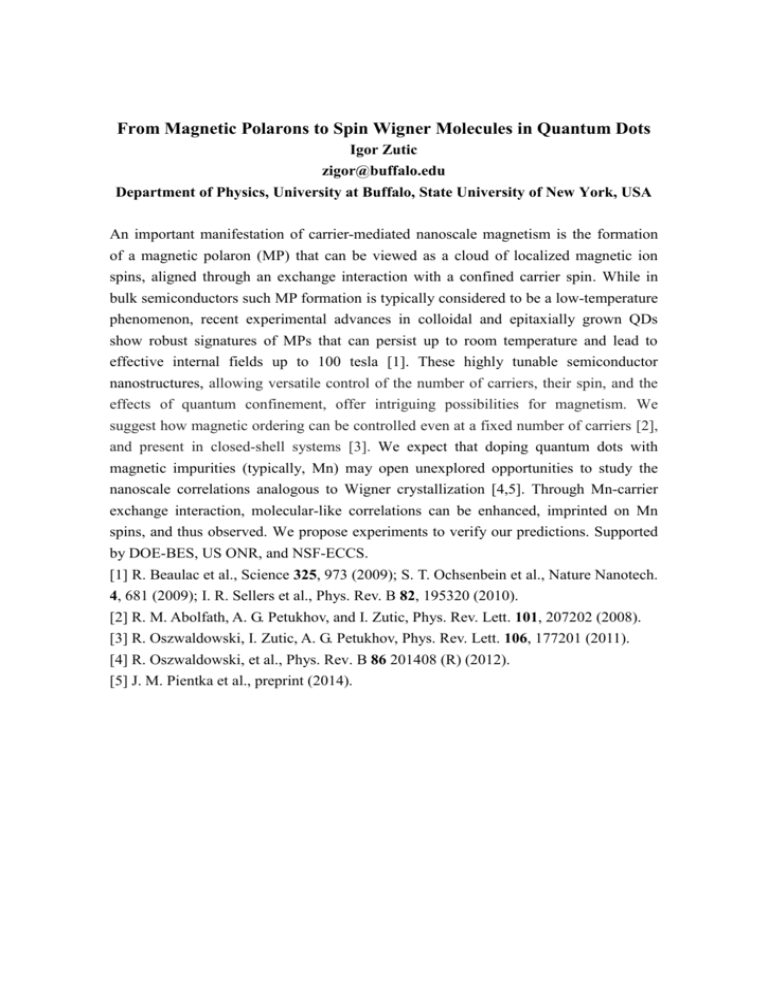
From Magnetic Polarons to Spin Wigner Molecules in Quantum Dots Igor Zutic zigor@buffalo.edu Department of Physics, University at Buffalo, State University of New York, USA An important manifestation of carrier-mediated nanoscale magnetism is the formation of a magnetic polaron (MP) that can be viewed as a cloud of localized magnetic ion spins, aligned through an exchange interaction with a confined carrier spin. While in bulk semiconductors such MP formation is typically considered to be a low-temperature phenomenon, recent experimental advances in colloidal and epitaxially grown QDs show robust signatures of MPs that can persist up to room temperature and lead to effective internal fields up to 100 tesla [1]. These highly tunable semiconductor nanostructures, allowing versatile control of the number of carriers, their spin, and the effects of quantum confinement, offer intriguing possibilities for magnetism. We suggest how magnetic ordering can be controlled even at a fixed number of carriers [2], and present in closed-shell systems [3]. We expect that doping quantum dots with magnetic impurities (typically, Mn) may open unexplored opportunities to study the nanoscale correlations analogous to Wigner crystallization [4,5]. Through Mn-carrier exchange interaction, molecular-like correlations can be enhanced, imprinted on Mn spins, and thus observed. We propose experiments to verify our predictions. Supported by DOE-BES, US ONR, and NSF-ECCS. [1] R. Beaulac et al., Science 325, 973 (2009); S. T. Ochsenbein et al., Nature Nanotech. 4, 681 (2009); I. R. Sellers et al., Phys. Rev. B 82, 195320 (2010). [2] R. M. Abolfath, A. G. Petukhov, and I. Zutic, Phys. Rev. Lett. 101, 207202 (2008). [3] R. Oszwaldowski, I. Zutic, A. G. Petukhov, Phys. Rev. Lett. 106, 177201 (2011). [4] R. Oszwaldowski, et al., Phys. Rev. B 86 201408 (R) (2012). [5] J. M. Pientka et al., preprint (2014).
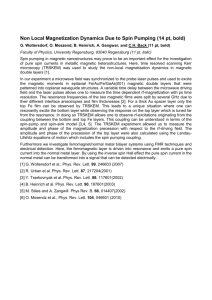
![[1]. In a second set of experiments we made use of an](http://s3.studylib.net/store/data/006848904_1-d28947f67e826ba748445eb0aaff5818-300x300.png)
